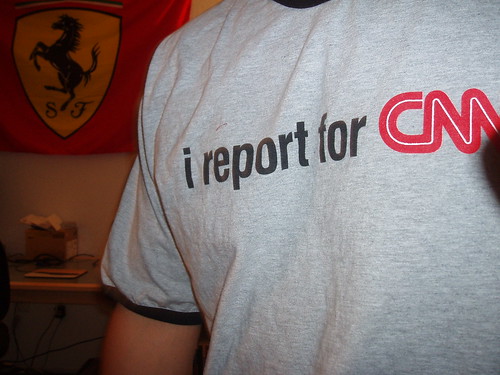
In the article, Shirkey talks about amateurazition and how effects the media business. He gives us an outlook about how the future might look like. He argues that everyone can become a media outlet easily. This will empower the regular people and democratize the media business. He says that big media outlets’ importance is decreasing and if they don’t adopt they might face with a serious danger of vanishing.
In the article he says that being an media outlet used to cost a lot of money .Production and distribution would need serious funding.He says that this is changing. Everyone who owns a computer and have access to internet can easily become a media outlet. This is called mass amateurazation.
He says that this will change the whole news culture .Big media corporate used to decide what news was for us. According to Shirkey, this is not the case anymore. Amateur people can easily draw people’s attention. He gives an example of politician named Trend Lott. According to article he makes some remarks that cost him his career in the Republican Party. But the interesting thing is that conventional media was not the one that made him resign. The people who saw his remarks on TV blogged their ideas and became big news.
In the article he says that being an media outlet used to cost a lot of money .Production and distribution would need serious funding.He says that this is changing. Everyone who owns a computer and have access to internet can easily become a media outlet. This is called mass amateurazation.
He says that this will change the whole news culture .Big media corporate used to decide what news was for us. According to Shirkey, this is not the case anymore. Amateur people can easily draw people’s attention. He gives an example of politician named Trend Lott. According to article he makes some remarks that cost him his career in the Republican Party. But the interesting thing is that conventional media was not the one that made him resign. The people who saw his remarks on TV blogged their ideas and became big news.
 I think the biggest example of mass ameturazation was recent Iranian elections. As we all know that after the fraudulent election people of Iran started riots in Iran streets. Iranian government tried to suppress the riots and they killed a lot of civilians. There was a big turmoil in the country but none of these riots was on TV or newspapers. It is because Iranian government owns all the media outlets in the country. Nobody can broadcast anything that the government does not want to see. The only thing they don’t have control over is the Iranian people. Everybody who owned a camera phone started shooting short clips and distributed to rest of the world about what was going on in the country. Everybody in Iran became small news outlets. Even big News outlets like BBC, CNN etc. were getting their news from these people via twitter or the short clips that they post on websites like Facebook and YouTube. I think this a clear example of mass amateurazation.
I think the biggest example of mass ameturazation was recent Iranian elections. As we all know that after the fraudulent election people of Iran started riots in Iran streets. Iranian government tried to suppress the riots and they killed a lot of civilians. There was a big turmoil in the country but none of these riots was on TV or newspapers. It is because Iranian government owns all the media outlets in the country. Nobody can broadcast anything that the government does not want to see. The only thing they don’t have control over is the Iranian people. Everybody who owned a camera phone started shooting short clips and distributed to rest of the world about what was going on in the country. Everybody in Iran became small news outlets. Even big News outlets like BBC, CNN etc. were getting their news from these people via twitter or the short clips that they post on websites like Facebook and YouTube. I think this a clear example of mass amateurazation. I think media reporters will still exist. They are professionally trained people. Big corporates will still benefit from their experiences but they are not going to be as important as they used to be. Amateur people also will be able to provide news for these stations as well. In my opinion news companies will benefit from this situation the best. It is because basically they will have reporters everywhere in the world. These companies won’t even have to keep them on payroll. They will just pay them when they have a good stories, pictures etc.

I absolutely agree. I think having all of these amateurs in the field is bringing the people of the world more well-rounded news just as you pointed out with your example of Iran. Without all of those citizens sending out their messages the rest of the world wouldn't have had the opportunity to see how these people really felt about their fraudulent elections.
ReplyDeleteI think you also make a good point about these amateurs potentially helping the larger "professional" and corporate news sources. Many of the US news stations would shy away from a controversial story like the one of the Iranian election (AKA Fox news). However the ones that wouldn't now have an army of journalists in the field sending them information, stories, pictures etc. that they can validate and disseminate free of cost. For the Big 5, those powerful and unknown old white men in suits on the 50th floors of office buildings, craving more money - that's a damn good deal.